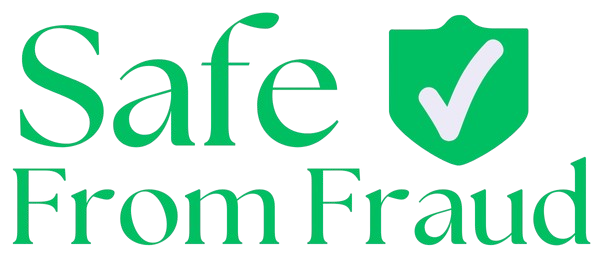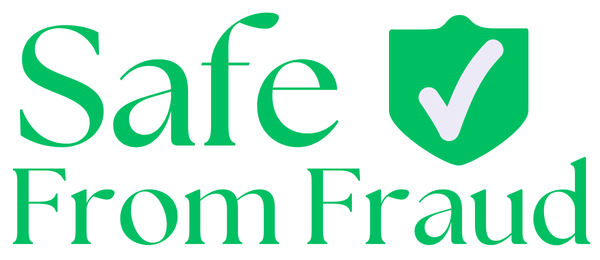As technology advances, banking has become more convenient, but it has also introduced the risk of fraud. From phishing emails to complex digital scams, fraudsters are finding new ways to trick unsuspecting individuals. Here’s a comprehensive guide on safeguarding yourself from online and phone fraud.
1. Secure Your Accounts with Strong Passwords
Creating a strong, unique password for each account is one of the simplest yet most effective ways to protect your personal information. Cybercriminals often use sophisticated tools to crack weak passwords, so make sure your passwords are robust.
- Combine Letters, Numbers, and Symbols: Create passwords that include upper and lowercase letters, numbers, and special characters.
- Avoid Personal Information: Don’t use easily guessed information like birthdays or names.
- Enable Two-Factor Authentication (2FA): Adding an extra layer of security can prevent unauthorized access.
Quick Tip: Update your passwords regularly and avoid reusing them across multiple accounts.
2. Recognize and Avoid Phishing Scams
Phishing is one of the most common ways criminals trick people into revealing personal information. Fraudsters often disguise themselves as trusted organizations, like banks, to get you to share sensitive information.
- Verify Email Senders: Phishing emails often look legitimate but come from suspicious email addresses. Always check the sender’s details.
- Do Not Click on Unknown Links: Avoid clicking links in unsolicited messages. If it looks suspicious, it likely is.
- Never Share Sensitive Information by Phone or Email: Banks and financial institutions never ask for your passwords or PIN over email or phone.
Quick Tip: If you’re unsure, contact the organization directly using official contact information.
3. Monitor Your Accounts Regularly
Keeping a close eye on your bank and credit card statements helps you catch fraudulent activities early. Make it a habit to review all transactions regularly.
- Set Up Real-Time Alerts: Many banks offer alerts for transactions via SMS or email, enabling you to track account activity instantly.
- Check Statements Monthly: Even small transactions can be a sign of fraud, so be sure to review statements thoroughly.
- Report Lost or Stolen Cards Immediately: If you lose your card, inform your bank right away to block it and prevent unauthorized transactions.
Quick Tip: The faster you report suspicious activity, the better the chance of preventing further fraud.
4. Secure Your Devices and Networks
Using secure devices and networks is essential for protecting your online activities. Public Wi-Fi, outdated software, and unsecured devices can expose your data to fraudsters.
- Avoid Using Public Wi-Fi for Financial Transactions: Public networks are less secure, making it easier for hackers to intercept data.
- Regularly Update Software and Apps: Software updates often include security patches that protect against new threats.
- Install Reliable Antivirus and Anti-Malware Software: These programs add a layer of security, protecting your device from malicious software.
Quick Tip: Consider using a Virtual Private Network (VPN) if you need to access sensitive information on public Wi-Fi.
Common Types of Online and Phone Frauds to Watch Out For
Knowing the types of fraud that exist can help you recognize suspicious activities. Here are some common scams:
- Phishing Scams: Fraudsters posing as legitimate entities to extract sensitive information.
- Vishing (Voice Phishing): Fraudsters calling and pretending to be from banks or official organizations to get personal details.
- Smishing (SMS Phishing): Fraudulent messages that ask for sensitive information or include links to malicious sites.
- SIM Swap Scams: Scammers gain control of your phone number to access your financial accounts.
Stay Informed: The more you know about these scams, the better prepared you’ll be to recognize and avoid them.
Tips for Avoiding Online and Phone Frauds
| Protection Measure | Key Actions |
| Strong Passwords | Use complex passwords; enable 2FA; avoid sharing them. |
| Phishing Awareness | Verify sender details; avoid unknown links; don’t share sensitive info over phone or email. |
| Account Monitoring | Set up alerts; review statements; report suspicious activity immediately. |
| Device & Network Security | Avoid public Wi-Fi; update software; use antivirus and VPN if necessary. |
What to Do If You Suspect Fraud
If you suspect you’re a victim of fraud, immediate action is essential. Follow these steps to minimize damage:
- Contact Your Bank or Service Provider: Inform them of the suspected fraud, block your account if necessary, and request an investigation.
- File a Police Report: Many types of fraud are criminal acts, so report the incident to your local authorities.
- Contact Regulatory Bodies: Some countries have dedicated bodies to help consumers deal with financial fraud. Consider filing a report with such an agency.
Quick Tip: Prompt action can help mitigate further losses and improve the chances of recovering your funds.
FAQs
A: Genuine bank representatives won’t ask for sensitive information like PINs or passwords over the phone. Always confirm with your bank directly if you’re unsure.
A: No, public Wi-Fi is generally unsecured and can expose your data to fraudsters. Avoid using it for financial transactions.
A: Ideally, update passwords every three to six months. Immediate changes are advised if you suspect a breach.
A: In some cases, banks may reverse transactions if fraud is detected and reported quickly. However, this varies depending on the bank’s policies and the nature of the fraud.
Staying safe from online and phone frauds is essential in today’s digital age. By following these tips and remaining vigilant, you can protect your personal and financial information from scammers. Remember: prevention is the best strategy, so stay informed and be proactive in keeping your data secure.


